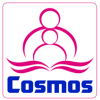1. Journal of International Economic and Administrative Studies is a peer-reviewed, international, academic journal published online twice a year.
2. All processes related to the journal are carried out through the "online article submission system." All actions related to the journal must be performed by logging into the article submission system via the Dergipark platform.
3. Articles can be submitted in either English or Turkish.
4. Articles submitted for publication should not be under peer review, in the acceptance process, or previously published elsewhere.
5. The journal editor will decide whether articles that comply with the writing rules will be included in the evaluation process. Articles that are included in the evaluation process are subjected to a double-blind peer review system. All articles will be sent to two experts in the field for review, and based on the referee reports, a third reviewer’s evaluation may be requested, or the editor will make the final decision.
6. The first page of a Turkish article should contain the title in both Turkish and English, abstracts in both Turkish and English (200-250 words each), up to five keywords in both Turkish and English, and JEL codes if applicable. For English articles, Turkish information is not required.
7. Author names should be written below the article title in a right-aligned manner, in 10-point font. The authors' institutional affiliations and emails should be written in footnotes, aligned to both sides, in 9-point font.
8. Submitted articles should be formatted in A4 size, with 2 cm margins on the left, right, bottom, and top, in 10-point Ebrima font, with 1.15 line spacing. The article, excluding references and appendices, should not exceed 20 pages. Pages should be numbered.
9. All first- and second-degree headings should be in bold, 11-point font; third-degree subheadings should be in bold, 10-point font, aligned to both sides (without indentation), with only the first letter capitalized.
10. Table titles should be in capitalized letters, centered, and placed above the table. Figures, charts, and map titles should be in capitalized letters, centered, and placed below the figure, chart, or map, with source references listed immediately below. Tables should be numbered sequentially as "Table 1, Table 2, Table 3, …" and figures should be numbered as "Figure 1, Figure 2, Figure 3, …".
11. Footnotes should be numbered with superscript numbers and written in 9-point font, aligned to both sides, providing additional explanations about the article’s content, not related to referencing.
12. Mathematical/statistical symbols should be prepared using the Microsoft Office equation editor.
13. At the end of the article, a bibliography section should be included, arranged alphabetically by the authors’ last names. Only the sources cited in the article should be listed. The bibliography should follow the examples provided below.
14. Citations and references should be formatted according to the APA 6th edition style. The format is as follows:
a-) In-text citations:
For a single author, cite as (Yayar, 2022: 8).
For two authors, cite as (Yayar and Tekgün, 2022: 3).
For more than two authors, cite as (İnalcık et al., 2011: 3-5).
Multiple citations on the same topic should be cited as (Bocutoğlu, 2014: 12; Genç, 2011: 3-5).
For multiple works by the same author in the same year, cite as (Ortaylı, 2012a: 13) and (Ortaylı, 2012b: 23).
b-) References:
Single-author Book
Tabakoğlu, A. (2012). Türkiye İktisat Tarihi. İstanbul: Dergâh Yayınları.
Translated Book
Acemoğlu, D. and Robinson, J. A. (2022). Why Nations Fail (Solina Silahlı, Trans.). İstanbul: Doğan Kitap.
Edited Book Chapter
Eldem, E. (2000). İstanbul: From Imperial Capital to a Peripheral City (E. Eldem, D. Goffman & B. Masters, Eds.). The Ottoman City Between East and West (pp. 152-230). İstanbul: Türkiye İş Bankası Kültür Yayınları.
Journal Article
Solow, R. M. (1957). Technical Change and the Aggregate Production Function. The Review of Economics and Statistics. 39(3): 312-320.
Kutan, A. M., Muradoglu, G. & Sudjana, B. G. (2012). IMF Programs, Financial and Real Sector Performance, and The Asian Crisis. Journal of Banking & Finance. 36(1): 164-182.
Conference Proceedings
Bilge, S. M. (2015). Maritime Trade Between Istanbul and the Caucasus Ports in the 15th-18th Centuries: Merchants, Sailors, and Villagers. Proceedings Book Vol. III (pp. 53-90) International Ottoman Istanbul Symposium. İstanbul. 25-26 May 2015.
Unpublished Thesis
Bal, F. (2011). Ottoman Empire-Spain Economic Relations (16th-18th Centuries). (Unpublished PhD thesis). İstanbul: Marmara University, Social Sciences Institute.
Online Source with Known Author
Modelski, G. (2013). Kondratieff (or K-) Waves. Washington University. Retrieved from
http://faculty.washington.edu/modelski/IPEKWAVE.html on 15/03/2015.
Online Source with Unknown Author
The Conference Board. (2001). Business Cycle Indicator Handbook. Retrieved from
http://www.conferenceboard.org/pdf_free/economics/bci/BCIHandbook.pdf on 27/06/2015.






